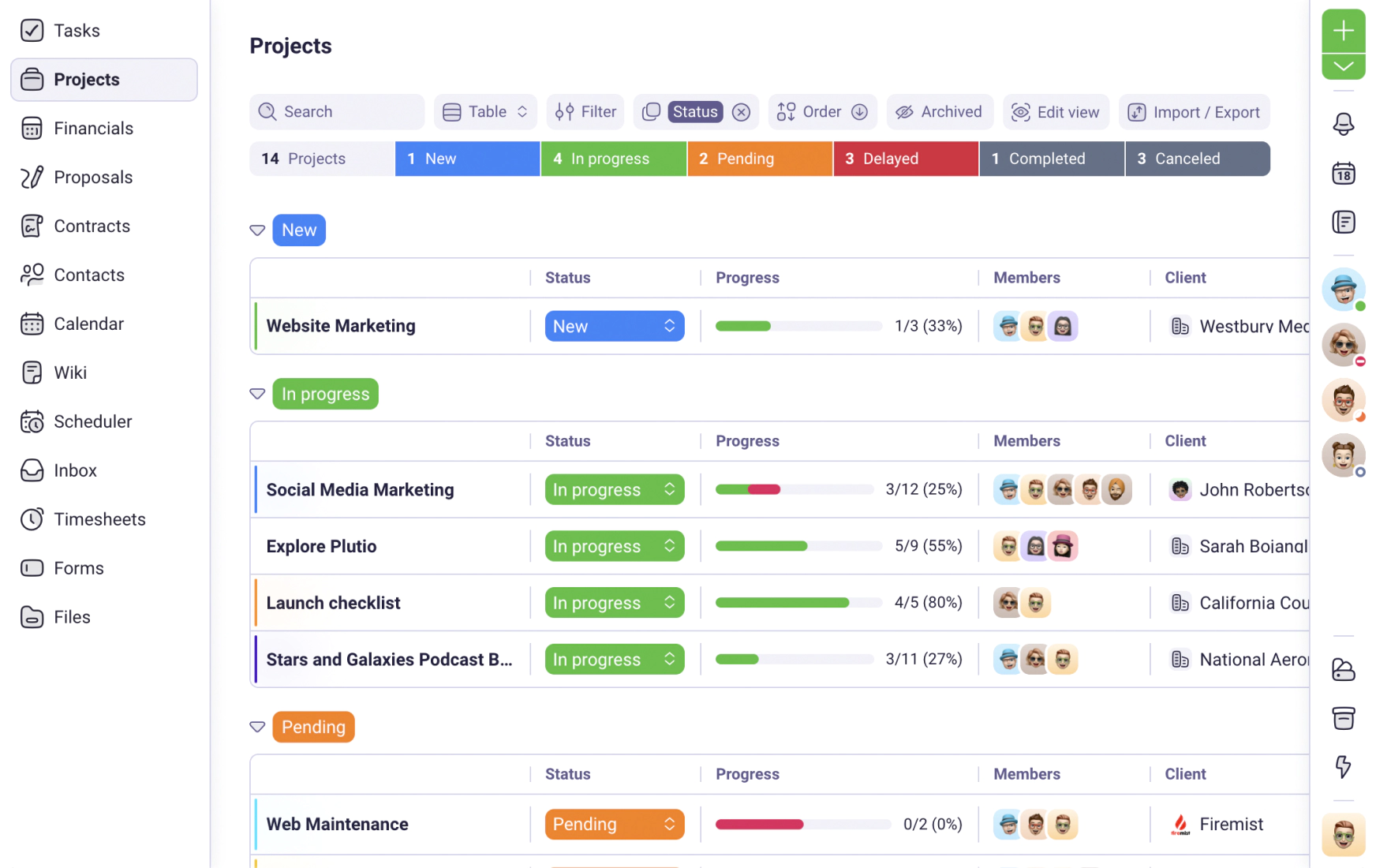We use cookies to personalise and enhance your experience.
As a freelancer, many aspects of your job are more complex than they would be if you worked for an employer.
For example, you must ensure all invoices are completed and sent off on time and are responsible for handling all customer interactions to a high standard. Essentially, you’re in charge of every factor required to run a successful business.
That means setting job rates and prices falls to you too. Asking for more money is an uncomfortable conversation made worse when you’re a contractor. It’s arguably one of the biggest challenges freelancers face.
Some clients may be reluctant to pay freelancers more than they already are because they don’t understand their worth. Unfortunately, they may also try to negotiate for incredibly cheap rates to benefit their finances, so it’s essential to know how much your services should cost and how to fight for those rates.
That’s why we’ve compiled this helpful guide to help you negotiate higher freelance rates.
Is It Time for a Pay Increase?
One of the main challenges of negotiating a pay increase is knowing when to do it. However, there are a few clear signs that indicate it’s time to raise your prices.
1. Your prices haven’t been reviewed in the last year
As a freelancer, you should regularly review your pay rates and amend accordingly. This is because, as you gain more experience, the quality of your work will gradually increase. Your rates should reflect the value of your output and should grow along with your skill.
If you’ve been self-employed longer than a year and haven’t reviewed your rates, it’s time to prioritize this.
2. Your workload has grown
One of the most attractive aspects of working as a freelancer is setting your working hours. You can take breaks when you like and create your own schedule.
However, it’s easy to take on too much and fail to maintain a healthy work/life balance. If you’re at this stage, you may not know how to manage tasks effectively, especially if you work as part of a team of collaborators and need to stay on track. Now is the time to increase your prices.
An increased workload signifies that the service you’re providing is in high demand and requires a higher price. By increasing rates, you may lose clients who are unwilling to pay more. However, this will allow you to enjoy more free time and focus on more extensive and lucrative projects.
3. You’ve provided work for major brands
Starting as a freelancer requires you to complete work for small businesses to gain experience and build your portfolio. It may even be necessary to work for free if you have no previous experience in the industry.
However, as your freelance business grows, you may attract interest from larger, better-known companies. For example, if you’ve provided work for a famous brand such as Google, other clients will be more inclined to pay higher rates to receive the same quality of work as them.
If that large company gives a personal recommendation for your work, then you could see a dramatic increase in brand awareness for your business. Because, if it’s good enough for Google, it’s good enough for local companies too.
4. You always hit the brief first time
Are your clients always impressed with your work and rarely request revisions? This may be a sign you could be making more.
You should always aim to set your rates on the higher end of the pay scale for your industry. If your clients are jumping at the chance to accept your work and very rarely turn your pitches down, revise your pricing.
After all, your freelance business is your livelihood and your primary source of income. Maintaining a healthy cash flow is crucial, so why settle for less than you’re worth?
How to Successfully Negotiate Freelance Rates
So, you know when you should start thinking of increasing your freelance rates, but now what? If you’re not negotiating effectively, then it’ll all be pointless.
The advice below will help you strengthen your negotiation techniques to win a pay raise as a freelancer.
1. Understand the difference between negotiating as an employee and a freelancer
Securing a pay increase as a freelancer is different from negotiating as an employee. Many organizations have protocols to organize pay rises. Some employees don’t even need to ask for one. Pay reviews may be written into their contract, or their manager could simply offer them a bonus for their hard work.
Unfortunately, it’s not as easy as this when you’re self-employed. Pay increases won’t just happen suddenly - you’ll need to work for them.
As a freelancer, you must sell yourself to your clients and make your value known. Consider the benefits your clients will experience working with you and make them aware of this. Remember, promoting your services doesn’t mean you’re smug or arrogant; it’s simply part of being a successful freelancer.
2. Do your research
Before starting a negotiation or implementing an increase in your rates, research an average freelancer pricing strategy for your industry. Know acceptable prices within your trade and understand which end of the spectrum you should aim for depending on your experience and qualifications.
Doing this will give you a safety net as clients will also likely look into industry pricing. If they see your rates are too high compared to everyone else, they’ll pass on your offer. On the other hand, if your rates are lower than the standard, they may assume your work isn’t high quality and search for someone else. Try to find a balance.
3. Decide what you want before negotiations start
Going into a meeting with your client knowing what you’re asking for will set the tone for the discussion. If you are confident and certain on your new rates, your client will be more likely to accept them without contest.
However, if you enter into pay conversations without any idea what you want to earn, you’ll give off the impression you’re unprepared. This may result in your client believing you’re wasting their time with empty discussions. Therefore, going in with the key communication skills needed to succeed is definitely beneficial.
So, take some time to determine your new rates and present them to your client confidently and professionally.
4. Work on your elevator pitch
If you’re unfamiliar with an elevator pitch, it’s an easy concept to grasp. Essentially, if you found yourself in an elevator with a businessperson who could change your company forever, how would you pitch your services to them in those few minutes? This is your elevator pitch.
Perfecting it will come in handy when negotiating payment as you may need to back this up with proof you’re worth the extra money. Reassuring your clients of this will make them feel more comfortable with your increased rates. It will also make them confident they’re working with a highly qualified professional who’ll meet their business needs.
Let’s say you’re a freelance content writer who’s versatile enough to write a beauty blog post and an educational article on the best small business phone systems in one day. Include this in your pitch and make it known to potential clients.
5. Work a pay rise into your contract
If a company hires you for ongoing work (for example, regular blog posts), it’s a good idea to include pay reviews in your contract.
Making your clients aware from the beginning of your relationship that regular pay reviews will be conducted creates a mutual understanding. This avoids any surprises or uncomfortable conversations down the line and creates a more transparent line of communication.
This is beneficial because you don’t have to negotiate increased freelance rates anew. Instead, it’s a matter of making your clients aware of the increased percentage. As they knew about this from the get-go, there should be no confrontation or questioning of your decision.
Don’t Sell Yourself Short
It can be daunting to request more money from your clients. It may even feel like you’re being unreasonable, especially when they already have so much to worry about, like managing a sales team remotely and keeping on top of their overheads.
Nonetheless, this must be done to continue growing your business, and everyone does it. Keep in mind you wouldn’t have started working as a freelancer if you weren’t capable of providing high-quality work to those who need it. People hire you for a reason, so your rates should reflect that you’re in demand and good at what you do.
Consider the advice above and start planning your negotiation strategy now. Be confident and know what you’re asking for is well deserved.
Have you tried Plutio yet?
The only app you need to run your business and get work done.
Try Plutio for FREESupercharge your business
The complete toolkit to run your business
The intuitive all-in-one solution to manage and collaborate on projects, share files, build forms, create proposals, get paid, and automate your workflow.
No credit card required


